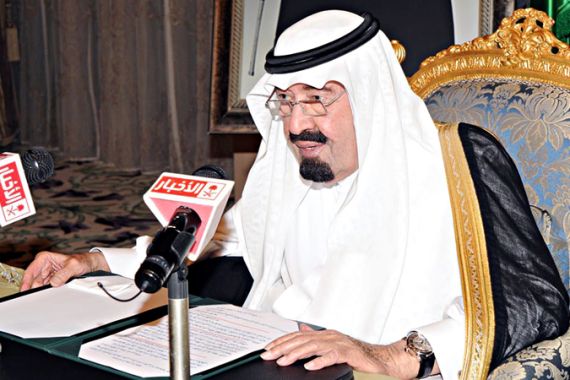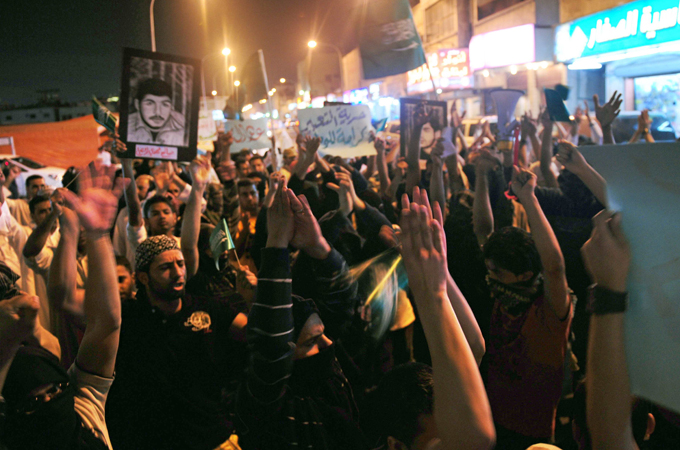Saudi Arabia to hold municipal polls
Local bodies elections could be concession extended to protesters seeking political change in kingdom.

 |
| Anti-government protests in the kingdom have so far been small and sporadic [Reuters] |
Saudi Arabia will hold municipal elections this month in a move seen to be a political concession to protesters who have called for major political changes in the kingdom.
“The first phase of the elections will start on Saturday, 19/5/1432 [a date in the Islamic calendar that is likely to fall on April 23],” the ministry of municipal and rural affairs said in a statement on Wednesday.
It did not, however, provide any more details on the elections, including if women would be able to take part.
Saudi Arabia, the world’s largest oil exporter, held elections to half of the seats on municipal councils in 2005, the first such polls in 40 years.
Those elections were held in several stages, and excluded women from both voting or running as candidates.
A second round of polls was due in 2009, but the government announced a delay of two years at the time.
The ministry’s statement said that it had begun preparations for the polls several months ago, in order to hold them before a final deadline in October.
The government appears to be attempting to stave off a wave of protests that has toppled the rulers of Egypt and Tunisia, and has spread to several other countries in the region.
Hussein Shobokshi, a columnist at the Asharq Alwasat newspaper, however, says that the demand for more empowered local bodies has existed since well before recent protests were held.
“I don’t think you need to link both events: what’s happening in the Middle East with the Saudi policies that have been taking place,” he told Al Jazeera.
“There was a lot of demands by the Saudi public, and some government officials to empower these elected bodies … that were introduced a few years back, particularly after the failure of some of them to deal with the crises, like the floods of Jeddah and other such events.
“These are internal issues that were raised by the press and the media, as well as some initiatives by businessmen and chambers of commerce and even human rights commissions to deal with these in a better manner. Empowering these bodies would definitely help delivering better elections.”
He also pointed out that Islamist groups are likely to continue their dominance of such polls.
“We can see some participation from various members of society. Saudi Arabia is a very diverse society … the past elections, the last and only election that was held, did see an important participation by Islamists. And the results showed that they had the most ability to organise, collect money and be in power, and I think they are preparing for another round.”
Protests
Protests in Saudi Arabia have so far been sporadic, small in scale and immediately clamped down upon by security forces.
But King Abdullah did announce a $93bn social handout package last week, including increasing funding for the security forces and religious establishment, as well as loans and increases in government salaries.
While no political concessions were announced as part of that package, the kingdom did create a new anti-corruption body.
Minority Shias have staged marches in the eastern province, where most of the kingdom’s oil fields are located, but few Sunnis have answered calls for similar protests in major cities.
Clerics in Saudi Arabia have termed anti-government protests “un-Islamic”.